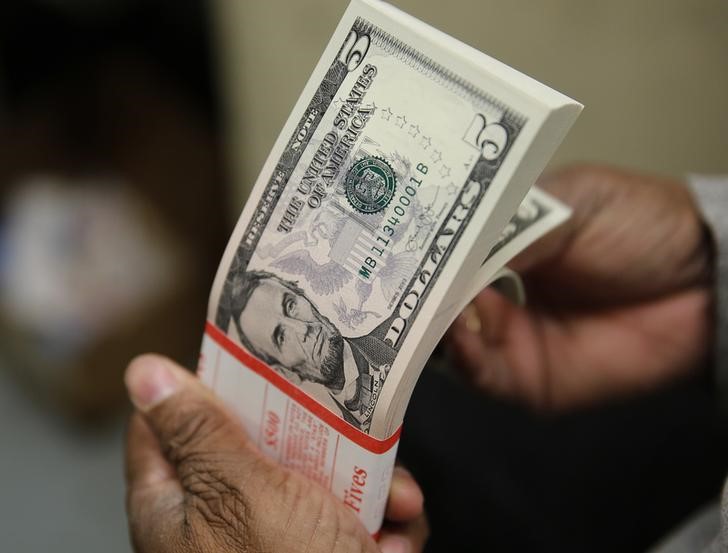(Reuters) – The dollar fell against the yen on Wednesday afternoon, retreating further from a 34-year high, two days after traders said Japanese authorities were buying the yen to support their currency, which is down 11% this year decreased.
The dollar/yen suddenly fell more than 3% from late Tuesday levels, trading as low as 153.00. That was below the low of 154.40 we saw on Monday during the retracement of 160.245. It was last at 154.845, down 1.85% from Tuesday.
COMMENTS:
JOHN VELIS, FX AND MACRO STRATEGIST AT BNY (emailed to Reuters)
“We think it was the Japanese MoF that intervened. A good time to do so, with late-day liquidity low and the dollar weakening after the FOMC. It is always better to intervene when the market is moving in your direction.”
MARC CHANDLER, CHIEF MARKET STRATEGIST, AT BANNOCKBURN GLOBAL FOREX
“It looked like an intervention and it surprised people.”
JOSEPH TREVISANI, SENIOR ANALYST, FX STREET, NEW YORK
‘It looks like an intervention. I don’t think the Japanese will say or admit anything. They didn’t do that last time, but it sure seems like it. I’m assuming the market action you’re seeing here… It’s the kind of movement you get when an entity, whoever it is, comes in and sells a large amount of currency to move the market, a large amount of dollars in this case.
But at this point I haven’t seen any comment from the BOJ. They know that if they don’t keep making their point, the market will return to its original level.
Remove ads
.
“AMO SAHOTA, DIRECTOR AT KLARITY FX, SAN FRANCISCO
“This smells like an intervention. There is also a lot of liquidity around the Fed’s interest rate decision. It looks like the Bank of Japan or the Ministry of Finance were active earlier this week.” “It’s a pretty important move. Whenever it got above 155 and into that 160, the writing was always on the wall that they would be unhappy about unreasonable moves. Although there was nothing really unreasonable in the last 24 hours.”
“Maybe they thought this was the path of least resistance at this point. It hasn’t had a knock-on effect on other currencies… It’s a dollar/yen position. That’s what really drives us to think about that thinking.” This would be more of a yen story than anything else on a day like today after the FOMC meeting as we don’t see similar moves across the board in the US dollar.”


